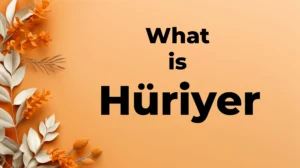Introduction
Evırı, a deeply rooted cultural tradition in Turkey, has been an integral part of the country’s heritage for centuries. This unique practice encompasses a variety of customs, rituals, and social practices that have evolved over time, reflecting the rich tapestry of Turkish history and society. This article delves into the origins, significance, and contemporary relevance of Evırı, highlighting its enduring impact on Turkish culture.
Historical Background
The origins of Evırı can be traced back to ancient Anatolian civilizations, where early communities engaged in communal rituals to foster social cohesion and collective identity. Over the centuries, these practices were influenced by various cultures, including the Seljuks and Ottomans, each adding their own elements to the tradition. By the time of the Ottoman Empire, Evırı had become a well-established cultural institution, celebrated through various festivals and ceremonies.
Cultural Significance
Evırı holds a special place in Turkish culture, symbolizing unity, continuity, and the passage of traditions from one generation to the next. It encompasses a range of activities, from traditional music and dance to communal feasts and storytelling. These activities not only entertain but also serve as a means of preserving historical narratives and cultural values.
One of the most prominent aspects of Evırı is its role in social gatherings. Whether during weddings, national holidays, or local festivals, Evırı brings people together, reinforcing social bonds and fostering a sense of community. It is a time for families and friends to reconnect, share experiences, and celebrate their shared heritage.
Modern Applications
In contemporary Turkish society, Evırı continues to be a vital part of everyday life, albeit with some modern adaptations. While traditional practices are still observed, they are often blended with contemporary elements to appeal to younger generations. For example, traditional Evırı music may now be performed with modern instruments, or ancient dances might be incorporated into new forms of artistic expression.
The influence of Evırı can also be seen in Turkey’s burgeoning tourism industry. Many cultural festivals and events showcasing Evırı attract visitors from around the world, eager to experience the vibrancy and authenticity of Turkish culture. This not only promotes cultural exchange but also contributes significantly to the local economy.
Economic Impact
The economic impact of Evırı is substantial, particularly in rural areas where traditional crafts and performances are a primary source of income. Artisans who create traditional Evırı attire, musicians, dancers, and event organizers all benefit from the cultural tourism spurred by Evırı. This economic activity helps sustain these traditions, ensuring they are passed down and appreciated by future generations.
Challenges and Future Prospects
Despite its enduring popularity, Evırı faces challenges in the modern era. Urbanization, globalization, and the spread of digital media have led to a gradual erosion of some traditional practices. Younger generations, in particular, may find it challenging to connect with older customs in an increasingly fast-paced and globalized world.
However, there is a growing movement within Turkey to preserve and revitalize Evırı. Cultural organizations, government initiatives, and local communities are working together to document, teach, and promote traditional practices. These efforts aim to ensure that Evırı remains a vibrant and relevant part of Turkish culture.
Conclusion
Evırı is more than just a collection of customs; it is a living testament to Turkey’s rich cultural heritage. By bringing people together and fostering a sense of community, it plays a crucial role in maintaining social cohesion and cultural continuity. As Turkey navigates the challenges of modernity, the preservation and adaptation of Evırı will be essential in keeping this unique tradition alive for future generations.
FAQs
-
What is Evırı?
Evırı is a traditional cultural practice in Turkey that encompasses various customs, rituals, and social activities, such as music, dance, and communal gatherings.
-
How did Evırı originate?
The origins of Evırı can be traced back to ancient Anatolian civilizations and have been influenced by various cultures over the centuries, including the Seljuks and Ottomans.
-
Why is Evırı important in Turkish culture?
Evırı symbolizes unity, continuity, and the passage of traditions. It brings people together during social gatherings, reinforcing social bonds and preserving cultural values.
-
How is Evırı practiced today?
While traditional practices are still observed, Evırı has adapted to modern times. It often blends ancient customs with contemporary elements, appealing to younger generations.
-
What is the economic impact of Evırı?
Evırı contributes significantly to the local economy, particularly in rural areas. Cultural tourism, traditional crafts, and performances all benefit from the popularity of Evırı.
-
What challenges does Evırı face today?
Urbanization, globalization, and digital media have led to the erosion of some traditional practices. Efforts are being made to preserve and revitalize Evırı for future generations.
-
How can I experience Evırı?
Visitors to Turkey can experience Evırı by attending cultural festivals, events, and performances that showcase traditional music, dance, and crafts.





















+ There are no comments
Add yours